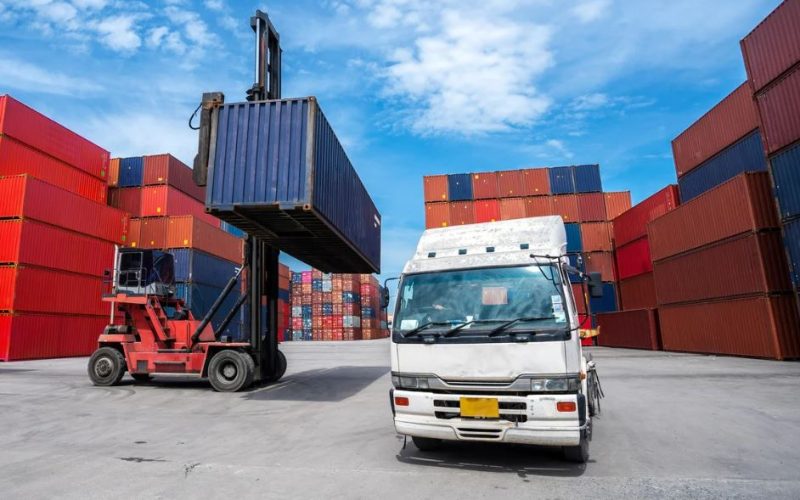Shifting economic pressures and international trade complexities have left many London-based companies rethinking how they handle supply and delivery operations.
Efficiency is no longer an internal matter; delays and errors now affect everything from customer satisfaction to growth targets.
Companies are making practical changes to avoid disruption and improve network coordination. These updates are happening behind the scenes, but can significantly impact daily operations.
From better coordination with suppliers to smarter use of logistics data, there is a clear move towards more resilient systems. Businesses that manage their operations effectively are often those prepared to rethink established methods and bring in specialist support where needed.
How Are London Businesses Adapting to Supply Chain Challenges?

Meeting Customer Expectations
Online shoppers are used to knowing when their parcel will arrive. That same mindset is spreading into every part of logistics, from B2B transactions to supplier arrangements. Businesses need to meet demands for quicker dispatch, reliable updates, and sustainable methods. That has shifted the role of logistics from something reactive into something far more strategic.
One of the most common updates involves increasing control over inventory and transport tracking. Firms are introducing software tools to monitor warehouse stock and transport schedules more closely. When something is late, alerts can trigger adjustments instantly, helping avoid disruption to the supply chain.
Freight logistics plays a key role here. Having accurate insight into where goods are and when they’ll arrive builds trust between suppliers and customers. It also helps internal teams plan ahead with confidence. Making logistics visible is a simple way to reduce errors and keep service levels consistent, even during peak demand.
Working with Logistics Experts
Outsourcing has become a smart step for many businesses that handle complex deliveries or international routes. Instead of trying to manage everything internally, they’re choosing to work with specialists who understand the fine details of transport, customs, and timing.
When selecting a partner, experience, and reliability matter most. That’s why some companies have chosen to work with Baxter Freight. Their approach allows firms to maintain high standards while reducing the pressure on internal teams. They also offer insight into new opportunities for streamlining, helping identify better routes or more cost-effective shipment methods.
A trusted freight company helps manage risks linked to delays, miscommunication, or incorrect documentation. These issues can be expensive if not handled early. Support from a freight forwarder ensures that goods are moving efficiently, and that any hurdles are resolved quickly.
Navigating Regulatory Shifts

Since changes to the UK’s trading position, logistics managers have had to deal with shifting customs processes, duty changes, and cross-border paperwork. What used to be routine now requires detailed preparation and planning. Companies that ignore this often find themselves facing costly delays or unexpected charges.
It helps to keep up with current rules, even if those rules don’t directly affect your business right now. Being ready means fewer surprises and smoother movements across borders. It also means better relationships with clients, because delays from customs issues are often passed down the chain.
Global freight logistics includes understanding how trade agreements and documentation interact. Even small businesses that only send goods occasionally need to prepare the right forms and ensure tariffs are accounted for. Software and third-party services can help with this, but only if staff are trained to use them properly.
Regular reviews of compliance practices should be scheduled. Treat it as an ongoing process, not a one-off check. That will help teams spot weak points early and adapt before problems arise.
Technology as a Logistics Tool
Automation and data analysis are changing how businesses approach fulfilment. That doesn’t mean replacing people; it means giving them tools to make better decisions.
Many companies are now using systems that integrate orders, transport, and stock in one place. These systems reduce the number of steps between receiving an order and getting it out the door, creating consistency and reducing the chance of human error.
Predictive technology helps, too. By analysing past data, companies can forecast peak times and adjust staffing or deliveries accordingly. This avoids backlogs and keeps service levels stable.
Global freight logistics relies heavily on data accuracy. Investing in good systems makes every stage, from quote to delivery, more transparent and efficient.
Greener Supply Chain Strategies
Sustainability is no longer seen as optional. Customers and regulators both expect businesses to consider their environmental footprint, particularly in shipping and packaging.
Companies are looking for ways to lower emissions during transport. That might involve combining shipments, choosing less polluting routes, or switching to electric delivery vehicles where possible. Every small improvement adds up over time, especially across large networks.
Packaging is another focus. Reducing materials, using recyclable options, and planning box sizes carefully all contribute to better outcomes. Staff training is important here, so everyone knows what the goals are and how to meet them.
Working with suppliers who share similar values also makes a difference. If a partner uses more efficient loading systems or has lower emission rates, that becomes part of your own sustainability story.
Being transparent about these efforts helps with marketing, too. It shows customers you’re making positive choices without needing flashy campaigns.
Ready to Improve Your Supply Chain
Change doesn’t happen overnight, but taking the first few steps is easier when there’s a clear path forward. London businesses are showing that flexibility, smart partnerships, and better systems make a real difference to logistics.
Companies that adjust early often avoid common pitfalls. They protect themselves from delays, reduce admin headaches, and deliver a better experience to their customers. They also avoid being caught out by policy changes or market pressures.
Every organisation will take a slightly different approach, depending on its size and sector. What matters is making deliberate choices and reviewing them regularly. Small changes to supply chain strategy can have lasting benefits.
Now is a good time to review your current processes and think about what could be simplified. Whether through tech upgrades, training, or support from an experienced freight partner, the opportunities are there to build something more reliable.









